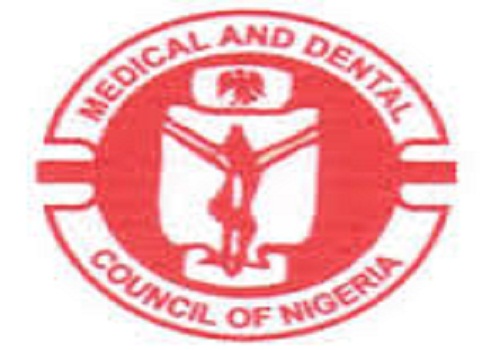This year 2020 is the tenth edition of our World Pharmacists Day. The theme of this year’s celebration is “Pharmacists transforming global health.” The aim is to show how pharmacists contribute to a world where everyone benefits from access to safe, effective, quality and affordable medicines and health technologies, as well as from pharmaceutical care services,
Pharmacists are one of the key health professions that will help meet the United Nations Sustainable Development Goals. Colleagues in all fields of the profession are all individually playing a part in transforming the health of their communities. Pharmacists throughout the world are one of the most accessible health care providers and are often the first health professional individuals seek for care. Many pharmacies in the communities operate for 24 hours a day without insisting on pre appointment. Pharmacists are uniquely positioned across communities to provide care and advice, especially for vulnerable populations. Currently, pharmacists all over the world are working tirelessly to stop the spread of COVID-19, and to ensure people continue to have access to medicines they need.
The World Pharmacists Day theme this year is an opportunity to communicate how pharmacists are transforming health through a variety of health services in their communities, including advising on healthy living, vaccinating to prevent disease, and ensuring that medicines are taken correctly, thereby managing diseases well and improving quality of life. It also covers how pharmaceutical scientists transform and prolong people’s lives by developing safe and effective medicines and vaccines. On the education front, pharmacy educators are transforming outcomes by ensuring that there are enough qualified and competent pharmacists and scientists to meet the growing needs of our societies.
Generally, clinical roles of pharmacists include: to evaluate and validate prescriptions or treatment regimen; reconcile the various prescriptions from various prescribers especially in comorbid patients. Most COVID-19 patients also experience elevated blood pressure and diabetes mellitus. Pharmacists are involved in identifying, preventing and resolving potential and actual Drug Related problems such as drug interactions, low and high doses and duplicate therapy. For example, use of azithromycin and Hydroxychloroquine together may have a serious impact on the cardiovascular system and are a potentially lethal combination. In other words, taking the 2 drugs together can affect the heart rhythm and may increase the risk of irregular heartbeat, which may be life threatening.
Pharmacists improve patients quality of life by bringing back hope to patients with serious and chronic diseases who have lost hope by providing disease education.
Pharmacists provide cost-effective drugs on time, as well as expert advice to prescribers and nurses on the proper time, route, food and liquid for drug administration to ensure optimum blood concentration of drug, that is bioavailability.
Pharmacists provide post discharge pharmaceutical care to patients upon discharge. This is to ensure that the patient still adheres to his medications, measures his/her blood pressure and sugar levels. In some cases, these are achieved by counselling via phone calls to patients.
Pharmacists ensure that safety and the expected therapy outcomes are achieved and generally take responsibility for drug therapy
Challenges confronting Pharmacy practice in Nigeria
1. Implementation of newly approved Consultancy Cadre for Pharmacists in Nigeria
Pharmacists are grateful to the Federal Government for the Release of the Circular for Consultant Pharmacists cadre recently issued by the office of the Head of the Civil Service of the Federation. We are now appealing to government via the National Salaries, Incomes and Wages Commission to expedite action on payment of the new remuneration to deserving pharmacists, so that the Nigerian people once and for all, will begin to benefit from the experience of consultant pharmacists in terms of reduced costs of care, improved treatment outcomes, and eventual reduction in brain drain from our healthcare professionals.
Nigeria needs to imbibe the new global trends in Pharmacy practice, such as the shift in focus from product to patient centered care, Doctor of Pharmacy Degree (PharmD), Consultancy Pharmacy, pharmaceutical care and more clinical roles for pharmacists such as vaccination and others. We are equally awaiting Release of Circular for enhanced entry point for our Doctor of Pharmacy graduates, in line with global trends.
2. Drug Revolving Fund Recapitalization
The Drug Revolving Fund (DRF) was set up by government to ensure continuous drug availability in hospitals and for out of stock syndrome to be reduced to the barest minimum in our health institutions. Unfortunately, this has not been the case and out of stock syndrome continues to thrive, due largely to mismanagement of the DRF by most hospital management who are owing drug manufacturers huge debts running into billions of naira. This is a call to government to assist in bailing out tertiary health institutions to enable then settle their indebtedness to drug manufacturers so they can resume supply of medicines to these institutions. Similarly. drug revolving fund incentives meant for pharmacists which was discontinued with consolidation of salaries by the federal government, must be paid to pharmacists in line with the provisions of the policy guidelines setting up the DRF.
3. Employment of more Pharmacists and increased remuneration for Pharmacists
Our Association has severally harped on the need to employ more pharmacists to work in our health institutions in Nigeria, in line with the recommendations of the World Health Organization, which says on the average about one pharmacist to 2,000 of the population, but in reality what obtains right now is about one pharmacist to over 50,000 persons. We are also advocating for increased salaries for pharmacists who have been stagnated by on the same basic salary since 2014, even when government has increased salaries of some other category of healthcare workers since then
4. Central Placement for Pharmacy Interns
Despite assurances of central placement for fresh pharmacy graduates and others, many graduates are still roaming the streets, looking for nonexistent internship space, two to three years after leaving school, thereby constituting huge financial burdens to their parents. We are calling on government to expedite action on central placement for pharmacy interns.
5. Payment of earned allowances to Pharmacists
We wish to seize this opportunity to call upon government to pay all outstanding monies to pharmacists such as the withheld April and May 2018 salaries of pharmacists and other healthcare workers, as well as balance of Call Duty arrears approved since 2014, to ameliorate the sufferings of pharmacists especially in view of the Corona pandemic hardship.
6. Improvement in Infrastructure development for better performance
CoVID-19 has exposed the inherent challenges and shortcomings in our healthcare institutions in the country, which government officials have also acknowledged. What is remaining is for government to summon the political will and resources to reposition the healthcare sector in line with global best practice and curb brain drain in Nigeria once and for all.
On this occasion of the 2020 World Pharmacists Day, the Association of Hospital and Administrative Pharmacists of Nigeria (AHAPN) wishes all pharmacists in Nigeria and Diaspora Happy World Pharmacists Day.
Dr. Kingsley Chiedu Amibor PharmD, MPH, FPCPharm
National Chairman AHAPN





